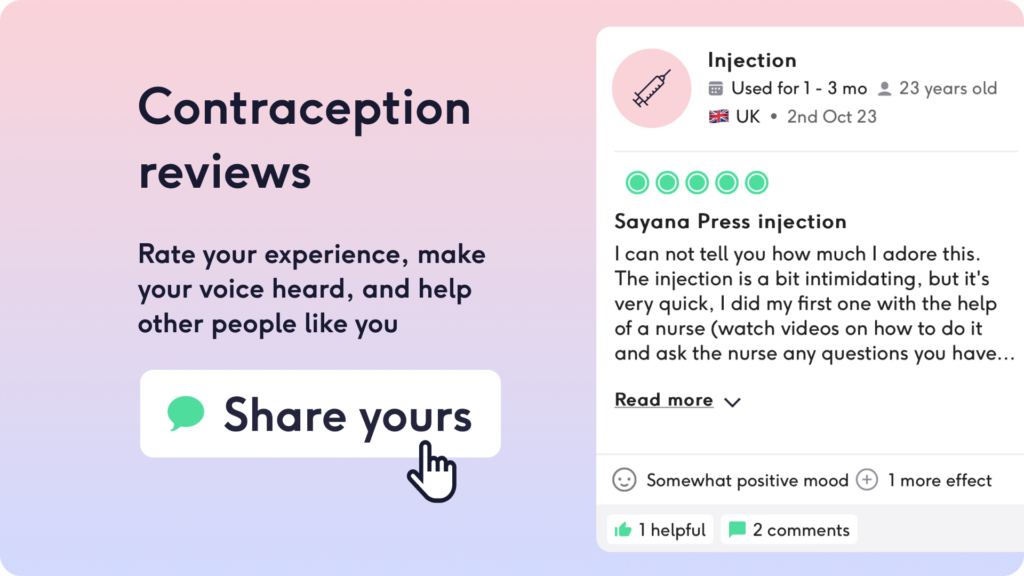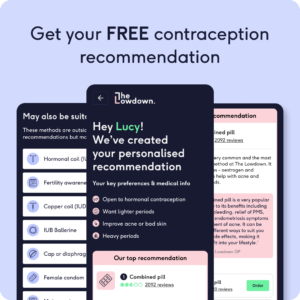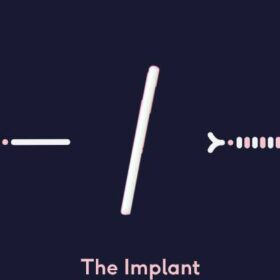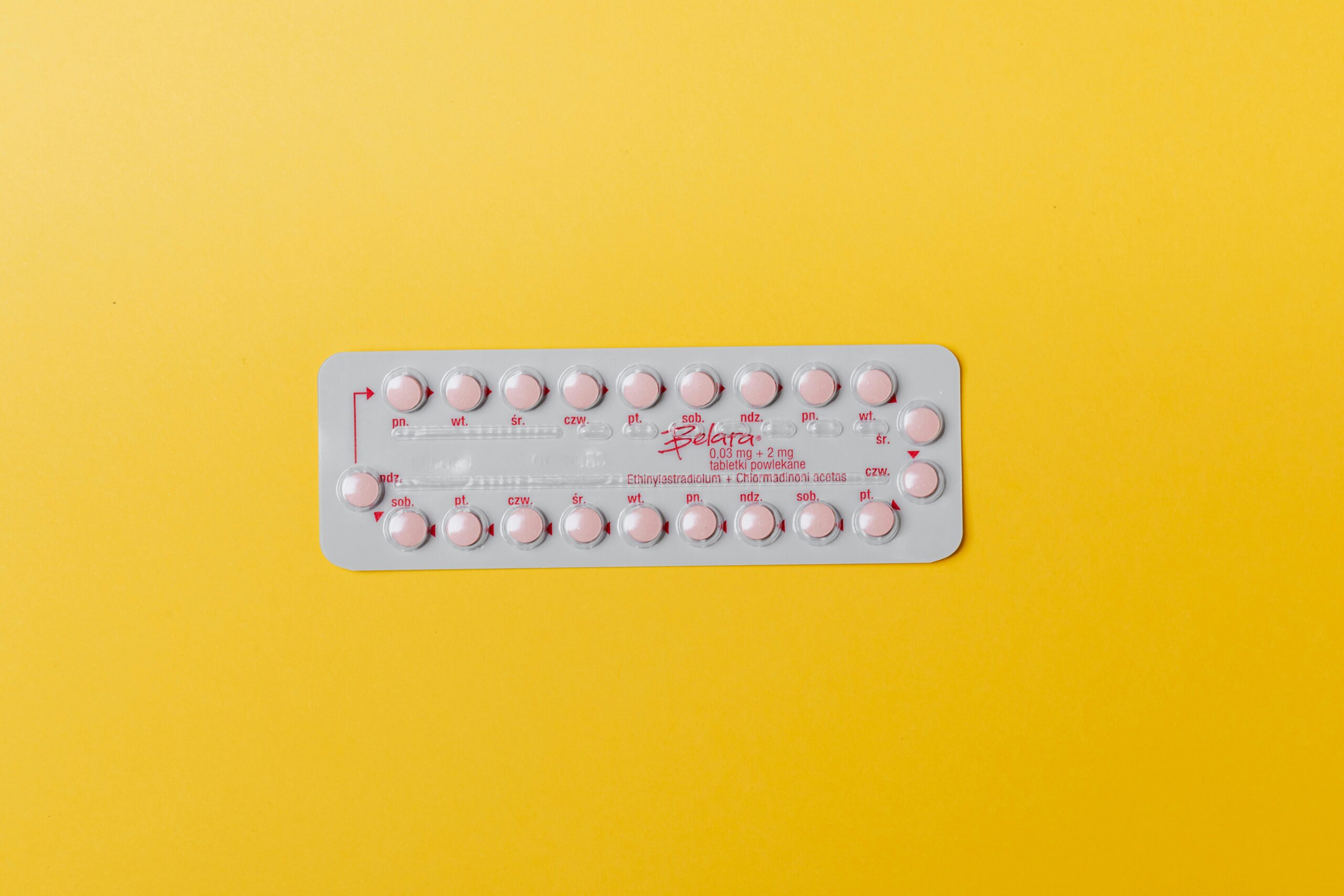
Can your contraceptive affect your mood?

This guide has been peer reviewed by the medical team at The Lowdown and the FSRH and is regularly reviewed as per both clinical content policies
In this article
What's the lowdown?
Hormonal contraception can have a negative impact on your mood, but some people find it beneficial for mood
Some forms of hormonal contraception could present a higher risk of low mood than others
Your age and medical history can affect your risk of developing low mood side effects
Working with your GP and taking note of the levels and types of hormones in your contraception could help you to find the right fit
Since the birth of the pill, some users have noticed a significant change in their mental health. For some of us, hormonal contraception seems to make the fluctuations in our mood more noticeable meaning people consider stopping or changing contraception because of negative mood side effects.
Of all the potential threats posed to our mood, depression is perhaps the most worrying. Some research shows that hormonal contraception is associated with the risk of attempted suicide ¹, and while findings like these are definitely alarming, they don’t paint a complete picture. What they do do, is highlight how important it is that we understand how our contraception choices can affect our mental health.
Is there a proven link between hormonal contraception and low mood?
Yes – but it isn’t quite as simple as that. A quick Google search of this question is a bit baffling: for every piece of research showing that low mood side effects exist, there is another study claiming the opposite. The problem is that contraceptive users have been reporting these possible side effects for years, but actual research into this topic has been patchy to say the least.
A Danish study from 2016 reported that women are more likely to be started on antidepressants for the first time or to be diagnosed with depression for the first time if they are currently using or have recently used hormonal contraception.² However the study did not account for possible confounding factors (i.e. real life) and importantly does not establish a causal link between hormonal contraception and depression.
The Faculty of Sexual and Reproductive Health in the UK have released two statements in recent years in response to studies that look at hormonal contraception and depression.³ ⁴ At present they advise healthcare professionals to tell patients that whilst it is recognised that some people report that they experience mood changes associated with hormonal contraception, there is no clear evidence that hormonal contraception causes or worsens depression.³
How might hormonal contraception influence mood?
All forms of hormonal contraception are associated with possible mood changes. The Summaries of Product Characteristics (and the info you get in your pill packet) for hormonal contraceptives list mood disorders as a potential side effect. Hormonal contraception contains oestrogen and/or progestin. These are synthetic versions of the hormones naturally produced by the female body. Progestins bind to progesterone receptors in the body causing changes that prevent pregnancy but which also seems to contribute to mood changes for some people. What doesn’t often get talked about is how hormonal contraception can also change lives for the better! In particular combined contraception can benefit people who have heavy, painful periods, irregular bleeding, acne or premenstrual syndrome (PMS). These are all conditions which can have a detrimental effect on mental health, so it goes without saying that treating these could greatly improve your mood!This goes some way to explaining why it’s difficult to draw conclusions from even large studies. We also don’t have standardised ways to objectively measure mood in research and as you can imagine, there’s no way to isolate study participants from the real world and the relationships, jobs and life stressors we experience.
Are there specific brands that impact mood?
Here’s the particularly bamboozling part: different combined contraceptives (those with both oestrogen and progestin) have different doses of each hormone and in particular different types of progestogen. Add to this that oestrogen and progestin can interact with each other in different ways, and we have ourselves a research minefield. Essentially, we have pills, patches, coils and injections, all with their own unique recipes and therefore potential side-effects. Most research tends to lump these together in the same studies, meaning it’s difficult to find any specific conclusions.While research conclusions vary and more is definitely needed, here’s what some of the evidence could suggest:
- Combined pills containing the progestogen drospirenone could have a more beneficial effect on mood than pills containing other progestogens ⁵
- Continuous use of combined methods where you take the pill, patch or vaginal ring back to back without a break and skipping the associated withdrawal bleed may be of benefit to mood ⁵
- Progestogen only contraceptive methods may be linked to higher rates of low mood ²
- Non-oral forms of hormonal contraception may be linked with a higher risk of depression (like the hormonal coil, patch and ring) ²
- Emerging research suggests newer pills containing oestrogen more similar to that naturally produced by the body may have a better mood side effect profile. ⁶
But if speaking to our friends about hormonal contraception has taught us anything, it’s that how it affects one person can be very different to how it affects another. In fact, who you are might actually be the most pressing thing to consider.
From clinical experience doctors say those who find their mood adversely affected by a specific hormonal contraceptive preparation will not necessarily have the same problem with other hormonal contraceptives.
How can I weigh up my individual risk?
There are several factors that research suggests that may mean you are more susceptible to the negative mental health effects of hormonal contraception:
- Your age. A study showed teenagers were more likely to suffer from low mood and depression when using hormonal contraception. ⁵ It may be that, the older you are, the less likely it is that you’ll experience these effects. However the study did not factor in possible other influences on teenagers’ mental health.
- Your medical history. If you have a history of mood disorder or depression, you might be more susceptible to experiencing low moods when using hormonal contraception.
- Your contraceptive history. If you experienced a negative impact on your mood the first time you tried the combined pill, you may be more likely to experience these side effects again.
- Just… you. Some people are simply more sensitive to changes in their oestrogen and progesterone levels. We know, we know – this information isn’t exactly stamped on your birth certificate. Only trial and error will tell you if you fall into this category.
Our contraception quiz takes into account all of these factors to determine the best form of contraception for you – try it today!
What does The Lowdown’s review data say?
As part of our contraception review form, we ask you how your contraception has affected your mood. The table below reflects data taken from reviews at the time of writing, and some methods with less than 100 reviews have been labelled. For more information on each method and specific brands, check out our contraception pages. This table shows how many Lowdown reviewers have found contraception to have either a negative, no change or positive effect on their mood.
It might be surprising to see the combined pill top the charts here and it is interesting to see the hormonal coil may have a lower impact than its oral counterparts. As you can see, even reviewers who have the copper coil, a non-hormonal contraceptive, have also reported negative effects on their mood. This could be down to the fact that the copper coil can commonly cause heavier periods, which may have an indirect effect on mood.These ‘sad face’ percentages reflect reviewers who have marked their contraception as having a ‘somewhat’ and ‘very’ negative affect on their mood – so this could include low mood, mood swings, anxiety and irritability, for example. Check out the reviews for each method for more detailed experiences.
Does the progestogen-only pill cause mood swings and depression?
It’s important to reiterate that everyone is different, and while one pill may work for someone else, it may not for you. A lot of mini pill users also find that mood related side effects are temporary – lasting for a few weeks or months (not that you should have to put up with them at all!). The Lowdown has over 1,000 reviews for the progestogen-only pill, and the below table shows how many Lowdown reviewers have found the four most popular brands of mini pill to have either a negative, no change or positive effect on their mood.Here’s a snapshot of what our reviews says about the Desogestrel progestogen-only pill and mood changes…
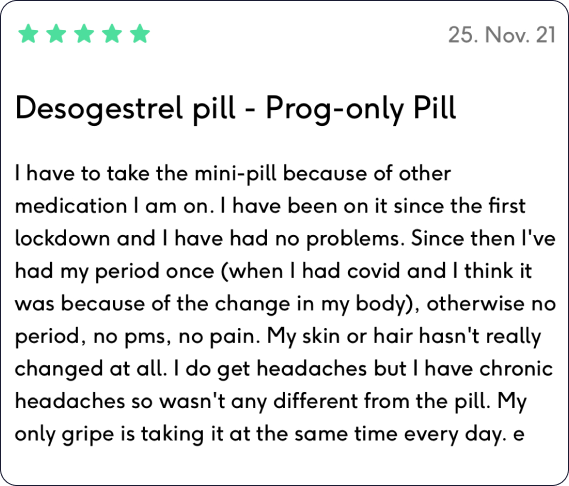
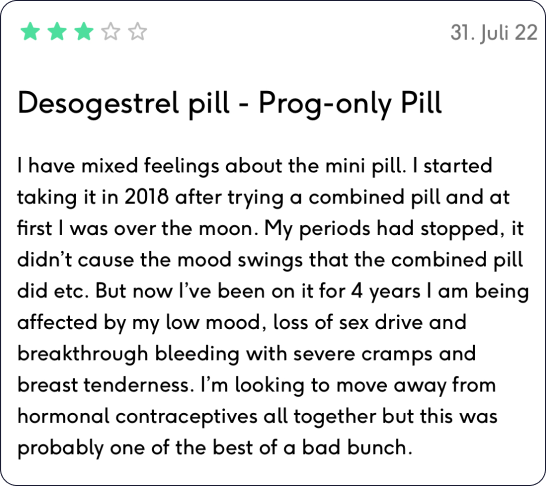
What information should I look for when choosing hormonal contraception?
What we should really be looking out for is robust studies to clarify any association between hormonal contraception and depression. Research into the effects of different types and levels of progestins and oestrogen, the interaction between these two and how they affect different individuals would be helpful. You can use The Lowdown’s contraception comparison service to compare every single type of contraception, to help you decide which contraception will be best for you. Or have a browse through the contraception reviews, on our website, from people like you for further guidance.
Annoying as it might seem, the take-home message is one that you have probably heard a million times before: try it and see. As the research stands at the minute, the most important factors to consider are your age, medical background and contraceptive history; something which didn’t suit your friend might be a good fit for you, and vice versa.
It is important to remember that not every woman experiences low mood when using hormonal contraception. Some women find no change to their emotional state, and others notice an improvement as some methods of contraception can improve heavy, painful periods, PMS, acne and other bothersome symptoms.
If you’re frustrated, remember that the perfect pill may not exist for every woman, but there are lots of other options out there! Chat to your healthcare professional or one of our fabulous medical team about your contraception to find the balance that works for you.
This blog can help you learn more about various contraception options, but it does not give medical advice. You should always speak to a nurse or doctor when making choices about contraception and before starting a new method.
Our medical review process
This article has been medically reviewed for factual and up to date information by a Lowdown doctor.

